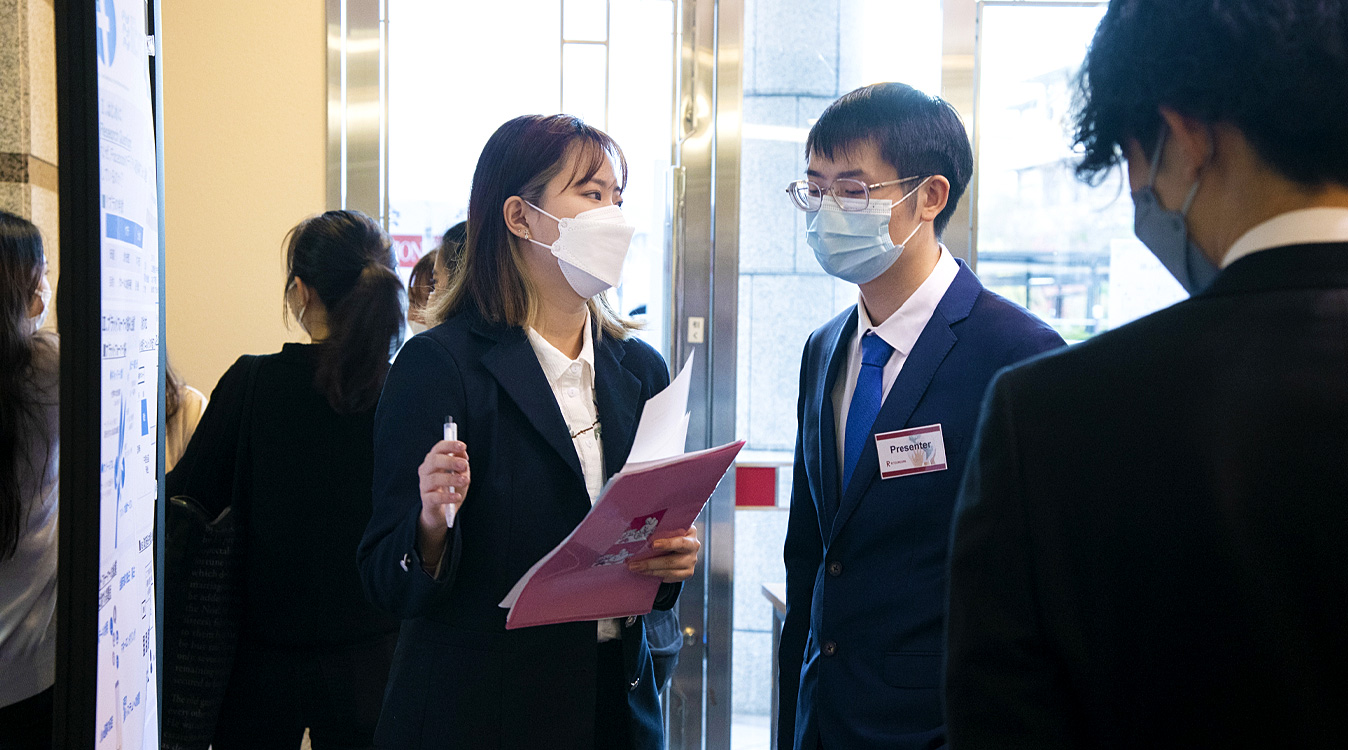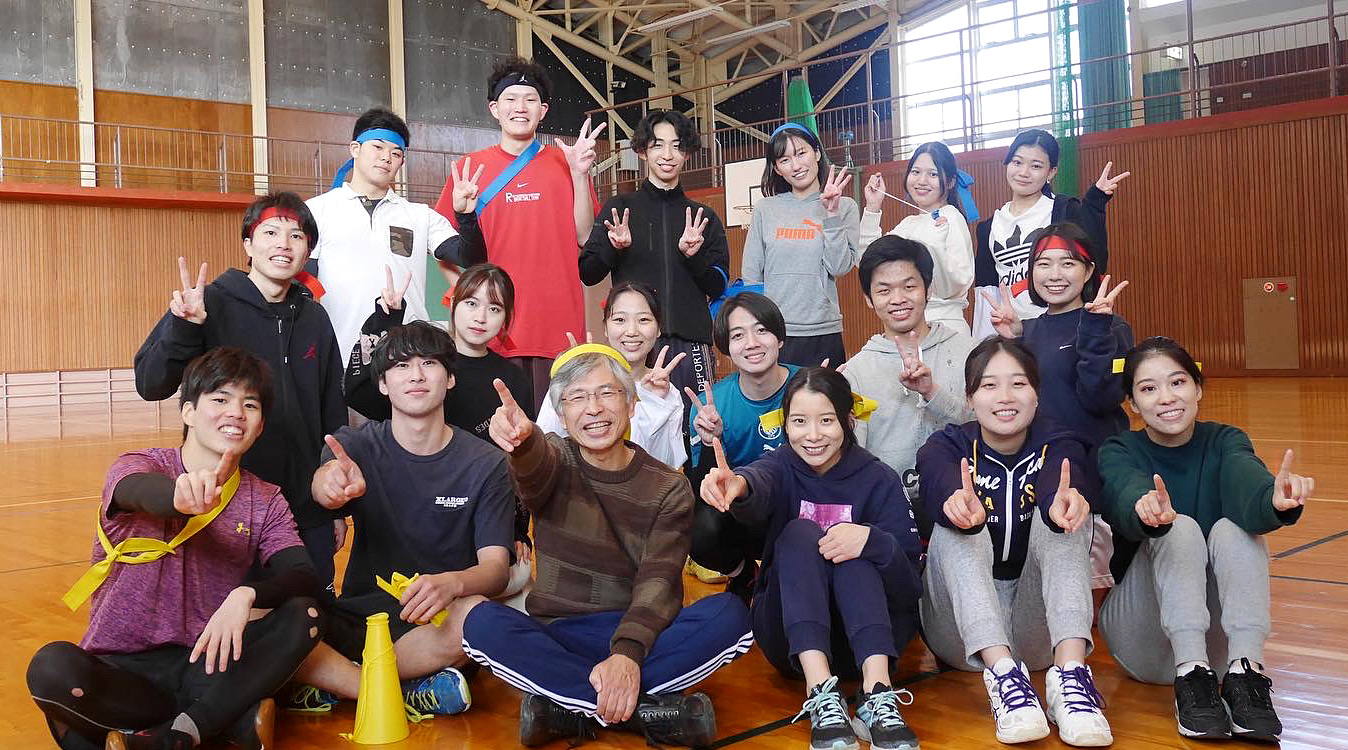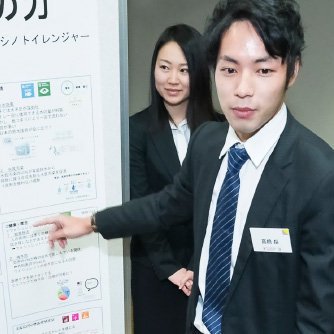Zemi Research Convention 2021
"Yen, Dollar, Euro, "Libra"-Facebook changing the way we think about money"
INOUE Takahiro, ISHIDA Nanako, MIHARA Nodoka, OTSUNA Kei, TSUDA Sachina, YOSHINAKA Jota, YANG Jingzhi
We interviewed the members of the Itaki seminar, who presented "Yen, Dollar, Euro, "Libra" -Facebook changing the way we think about money" at the 2021 College of International Relations Zemi Research Convention.
Please give details of your Zemi Research Convention presentation.
The theme of our group's presentation was "Yen, Dollar, Euro, "Libra"? Is Facebook changing the way we think about money?" In 2019, Facebook, one of the five giant IT companies known as "GAFAM", started to issue a digital currency (Libra). Some of you may be thinking, "Facebook made digital currency? What does that have anything to do with me?" As we researched in to "Libra", we found that it is unlike the conventional "digital currency" used for investment purposes and that it has the potential to become a currency that can affect our future daily lives.
Why did you choose your theme?
At first, we thought about choosing "investment" as a theme, but as we researched we realised that the topic was too broad and difficult. We used the Itaki Seminar theory and reflected on how economics relates to our daily lives. We brainstormed ideas and questions we have in our lives. Through this, we finalised the theme of: "What is virtual currency?" and from there, we proceeded with our research and ended upon researching "Libra".

What questions and comments did you receive at the Zemi Research Convention, and which made the most impact on your group?
We received many comments such as: "Why did you decide to research virtual currency?" or "It's too difficult to understand even after listening to the explanation... But we will keep it in mind because libra and virtual currency may become more mainstream in the future, and it may become relevant to our own lives."
What struck us was that many people listened to the lecture until the end and asked questions even when initially they were put off by the topic because it seemed too complicated. In addition to cash and credit cards, virtual currencies may become the "alternative" for money in the future. We wanted the students to know about this fact through our presentation, and I think they got the message.
What kind of things did you experience as a group leading up to the convention?
The hardest part of the preparation period was deciding on the theme and the race against time to get it done for the event day. The theme is difficult to convey, so the main goal was to make it easier to understand. We avoided using technical words, rephrased them to encourage comprehension, and gave straightforward examples.
What did you learn through the Zemi Research Convention you can apply to your future career?
Rather than limiting our research to what we already knew and were interested in, we could expand our knowledge, interests and horizons by going one step further out of our comfort zone.
Through our research, we recognised that we did not set the right questions at the beginning and could find deeper issues and deepen our discussion from there. From preparation to the presentation, we were able to work hard without being discouraged because we were a group of friends who worked and conducted research together well.
Gaining insight into the difficulty of working in a group and the experience of discussing different opinions and sharing each other's knowledge are all an asset for when we go out into the working world.
We will use the information gathering methods, presentation techniques, and poster designing skills we learned from listening to other presentations as a reference for the future.
Message to the next year's participants
The Zemi Research Convention allows students to spend several months researching a single academic topic as a group. Such opportunities do not come along very often in university life. Experiencing the Corona pandemic, we are reminded of how valuable it is to engage in an academic discussion face-to-face with our peers. We urge you to make the most of your time as a student and enjoy the excitement of research to the fullest!
Choosing a topic can be a time-consuming process, so we advise you to finalise the theme as soon as possible. It was also good to have other issues to fall back on and a goal set from the beginning, as it helped the team make decisions when we were unsure.
Introduction of the seminar
We have been studying international economics in the Itaki Seminar this year. In the Spring Semester of our third year, we mainly learned the basics of understanding today's international economy, such as trade, investment and finance, using Professor Itaki's original teaching materials. From the summer vacation, we read literature and studied the topic of "digital currency" within the world of international political economy and its impact on our daily lives.
In the autumn semester of our third year, we all wrote a joint paper, a unique feature of the Itaki Seminar.
Professor Itaki is very kind and gives us gentle and accurate advice when we don't understand something. We gain new perspectives through discussions amongst students and professors, which is always inspiring.
Professor Itaki is excellent at explaining things, and he teaches everyone about economics from the basics. He is also very good at leading discussions; students naturally start discussions with one another in class. He pays close attention to each of us and actively participates in exchanges and activities with other seminar students outside of class.
One of the main attractions of the Itaki Seminar is that we have the chance to interact not only with current students but also with people in the workforce who are alumni of Itaki Seminar from the past 30 years.

March 2022
MORE INTERVIEWS
-
International collaboration is not merely an ideal, but something that is both achievable and essential
Tran Duc Tuan (Steven)
Honda (Graduate School of International Relations Alumnus 2015)2026.2.13
alumni|
-
Zemi Research Convention 2025 “Where do we find the laughter?”
JDP Team
(Team name: The Japarican: Trans-Pacific Humor Accord)2026.2.3
academics|jdp|openseminar|
-
Diversifying opportunities and improving oneself by crossing borders
Jameel Mikaheel Yamaguchi
Fourth-year Global Studies Major2026.1.26
studyabroad|international|gs_major|
-
I participated in the Peace Studies Seminar and engaged in meaningful discussions with peers who shared a commitment to deepening our understanding of peacebuilding and broadening our perspectives.
ONG Kristen Valeria
Second-year Global Studies Major / International Student from Singapore2025.11.5
studentlife|academics|gs_major|
-
The Bangkok International Organization Training Program Taught Me the Importance of Understanding Regions from a Broad Perspective — I Aspire to Build a Career in International Politics
RINALDI Christian Giuseppe
Second-year Joint Degree Program (AU-home)2025.10.22
academics|international|jdp|
-
Developing my Japanese proficiency enabled me to engage in a wide range of experiences during my time in Japan.
DAO NGUYEN BAO Ngoc
Third-year Global Studies Major / International Student from Vietnam2025.9.26
studentlife|international|gs_major|
